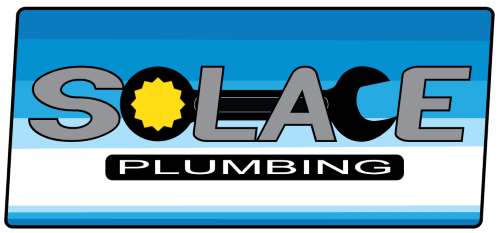Are Flushable Wipes Really Flushable?
Flushable wipes have become more and more popular due to their convenience and hygiene benefits.
Flushable wipes have become more and more popular due to their convenience and hygiene benefits. However, the question remains: are flushable wipes really flushable? Despite being marketed as safe for sewer systems and septic tanks, many plumbing professionals and environmental experts argue otherwise. Understanding the impact of these wipes on plumbing systems and the environment is crucial for making informed decisions.
The Composition of Flushable Wipes
Flushable wipes are typically created from a combination of natural and synthetic fibers. Unlike toilet paper, which is made to break down rapidly in water, flushable wipes are engineered to be more durable. This durability is beneficial for their intended use but problematic for plumbing systems. The fibers in flushable wipes do not disintegrate as easily as toilet paper, causing blockages and other plumbing issues.
Impact on Plumbing Systems
One of the most significant concerns with flushable wipes is their impact on residential plumbing systems. When these wipes are flushed, they can cause blockages in the pipes, leading to slow drains, backups, and even sewer line damage. Unlike toilet paper, which dissolves rapidly, flushable wipes can accumulate in the pipes and combine with other debris, creating substantial clogs. Homeowners often need to seek professional plumbing repair to address these issues, which can be both costly and inconvenient.
Environmental Concerns
The environmental impact of flushable wipes is another critical consideration. Even if flushable wipes do not cause immediate plumbing problems, they can still contribute to larger environmental issues. Wipes that pass through residential plumbing systems often without causing blockages end up in municipal sewer systems. Once there, they can cause significant problems at wastewater treatment plants. These facilities are not always equipped to handle the increased volume of non-degradable materials, leading to operational challenges and increased maintenance costs. Additionally, wipes that escape the treatment process can pollute waterways, harm aquatic life, and contribute to the growing problem of microplastic pollution.
Industry and Regulatory Responses
The growing awareness of the problems associated with flushable wipes has led to various industry and regulatory responses. Some manufacturers have begun to improve the design of flushable wipes to make them more biodegradable and compatible with plumbing systems. However, these efforts are still in the early stages, and many products on the market continue to pose risks. Regulatory bodies in some regions have also started to take action by imposing stricter guidelines on the labeling and marketing of flushable wipes. These regulations aim to provide consumers with clearer information about the potential impacts of these products on plumbing and the environment.
Alternative Solutions
Given the challenges associated with flushable wipes, it is essential to consider alternative solutions. Using traditional toilet paper remains the safest option for plumbing systems. For those who prefer the convenience of wipes, choosing products that are specifically designed to be septic-safe and biodegradable can help mitigate some risks. Additionally, disposing of wipes in the trash rather than flushing them can prevent plumbing problems and reduce environmental impact. Homeowners can also consider installing bidets or bidet attachments as a more sustainable and plumbing-friendly alternative to wipes.
Tips for Maintaining a Healthy Plumbing System
Maintaining a healthy plumbing system involves more than just being cautious about what is flushed. Regular maintenance and inspections by a residential plumber can help identify and address potential issues before they become significant problems. Avoiding the disposal of non-degradable items in toilets and drains is a crucial step in preventing blockages and securing the long-term health of the plumbing system. Simple practices like using strainers in sinks and showers to catch hair and debris and regularly cleaning out drains can also make a significant difference.
Community and Consumer Education
Educating the community and consumers about the risks associated with flushable wipes is vital for fostering responsible usage. Plumbing professionals and environmental organizations can play a crucial role in raising awareness through educational campaigns and public outreach. Providing clear and accurate information about the impacts of flushable wipes on plumbing systems and the environment can empower consumers to make informed choices and adopt more sustainable practices.
The convenience of flushable wipes comes with significant drawbacks that affect both plumbing systems and the environment. Understanding the composition and impact of these products is essential for making informed decisions about their use. By considering alternative solutions and adopting responsible disposal practices, homeowners can help protect their plumbing systems and contribute to a healthier environment. Consulting with a residential plumber for professional advice and regular maintenance can further safeguard against the problems associated with flushable wipes, guaranteeing a reliable and efficient plumbing system.
Solace Plumbing is a licensed commercial and residential plumber with 26 years of experience in Gilbert, AZ. We provide the East Valley with a wide range of plumbing services, including 24-hour emergency service. Some of our specialties include bathtub and shower, drain installation and cleaning, faucet installation and repair, and garbage disposal installation and repair. Commercial work includes restaurants, school districts, and tenant improvements. Call us to learn more.

